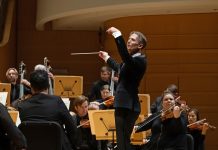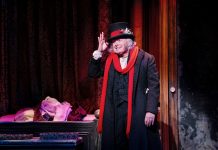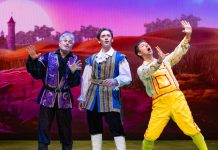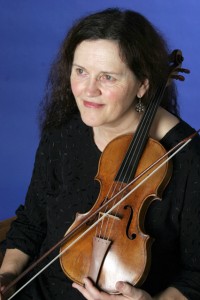
Like the best sort of private parties, each of the five intimate concerts in Corona Del Mar’s Baroque Music Festival that runs June 22 – 29 is filled with pleasurable possibilities.
First and foremost are the beautifully measured and resonant masterpieces of the Baroque period, played by virtuoso musicians on true-to-the-period (either antique or authentically crafted reproduction) instruments. How often does that happen?
Then there’s the chance to catch up with old friends or maybe meet a few new ones, all while soaking in the ambiance of some truly amazing concert settings, such as the Sherman Library and Gardens or St. Michael & All Angels Episcopal Church.
A treasured local celebration since 1981, the festival celebrates its 34th Season later this month with a quintet of feasts for the senses. Ranging from slightly pre- to definitely post- period, the repertoire in whimsically titled programs such as “Whence Baroque” and “Whither Baroque” promises a palate-pleasing smorgasbord.
“The festival first began because Burton Karson (co-founder and former Artistic Director) and others thought ‘why do we have to drive to Los Angeles to hear fine music?’ Rather than having to go to another metropolitan area, this was sort of in your own backyard, if you will,” explained Baroque Music Festival Board President Patricia Bril during a recent phone conversation.
An audience member since the early 80s, Bril has been active on the board for the past six years and became president in March.
“It’s really become very much a part of the community,” she said. “And I think one of the unique things is the wine and waters reception we have after each concert. It’s an opportunity to mingle with the musicians, to hear directly from them about the music. It’s always been very meaningful for me.”
That’s something I have enjoyed as well, in addition to quenching my thirst for Baroque music, a long-time favorite. When I asked Artistic Director and violinist Elizabeth Blumenstock what it was about the period that speaks to her she was equally enthusiastic:
“It’s interesting that you use the word “speaks” in your question, because it is precisely the sense of being ‘spoken to’ by Baroque music that speaks to me,” she wrote via email from Goettingen, Germany, where she has been performing as concertmaster of the Haendel Festspiel Orchester for the last month.
“Performed with an understanding of rhetoric (effective public speaking), which Baroque composers absolutely studied, Baroque music is wonderfully communicative in an almost speech-like way,”
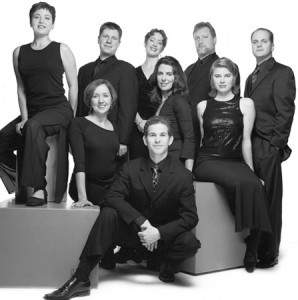
she added. “Phrases are often of sentence or clause-like length, small thematic groups of notes like words, and phrases are punctuated with easily identifiable commas, question marks, exclamation marks, and periods. Listening to a piece of well-played Baroque music is to me quite similar to hearing someone read a story or poem eloquently.”
From an evening showcasing the singers from Los Angeles’ Concord Ensemble with late Renaissance and very early Baroque vocal works which Blumenstock describes as “phenomenally fresh, often startling, and simply gorgeous!” to a glimpse of the 17th century’s changing instrumental scene featuring the cornetto, a blend of trumpet, oboe, and saxophone, each program is too totally tempting. How to pick just one?
“Sunday’s traditional concerto program focuses on the Baroque era’s two most prolific composers of concertos, Telemann and Vivaldi,” she reflected. “Though both composed many concertos for single soloists, this program mostly offers a look at their concertos for more than one soloist, which are wonderful and seriously under-performed. I can’t say whether I like Vivaldi or Telemann better – how do you choose between tiramisu and Sachertorte? Why choose? Have both!”
The Baroque Music Festival runs June 22 – 29 at various venues. For tickets and information visit bmf-cdm.org.


